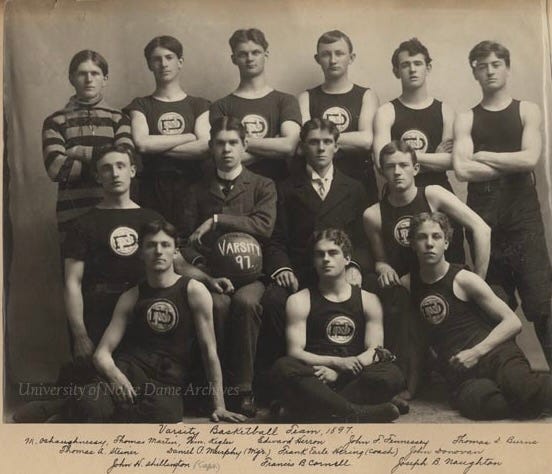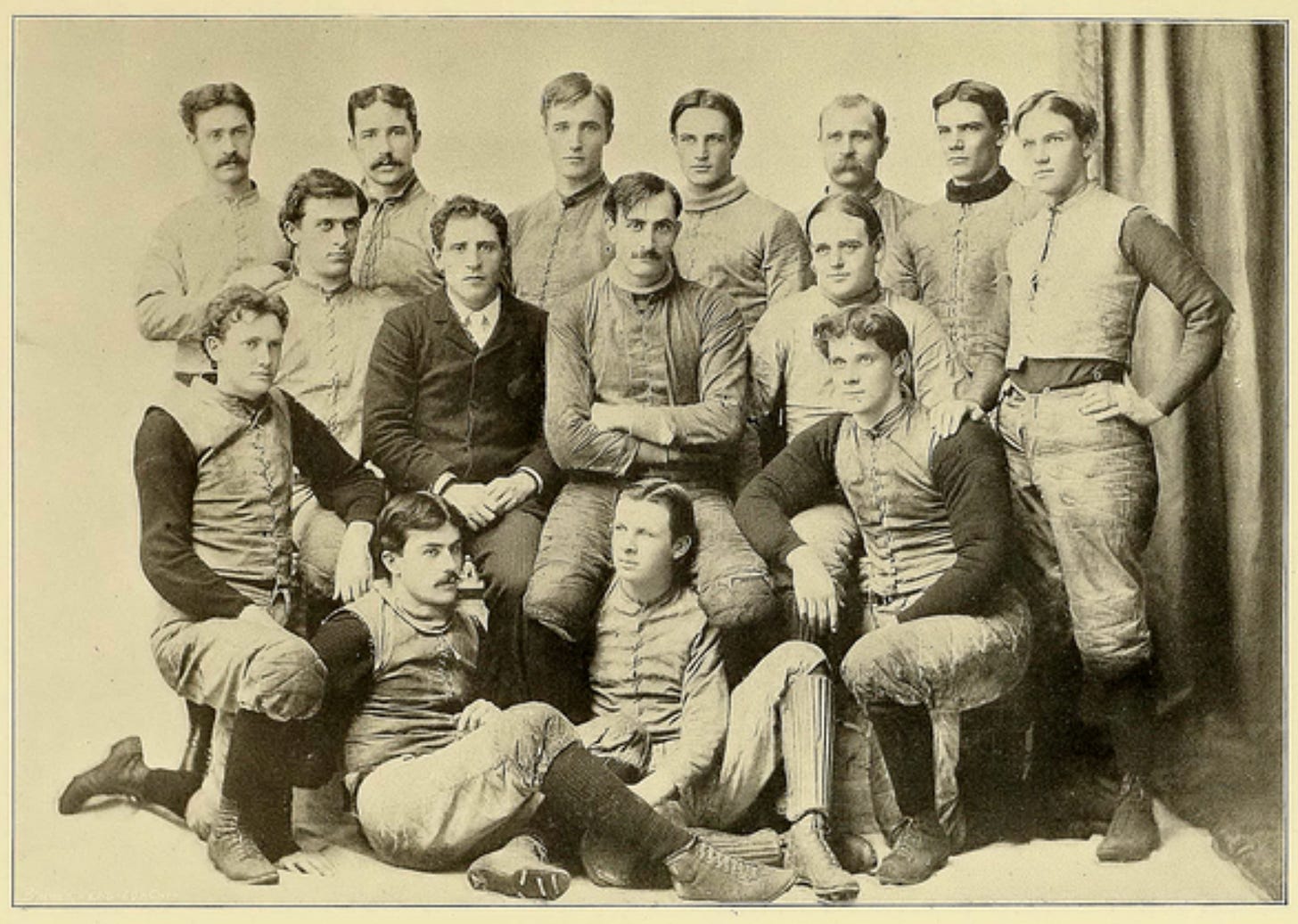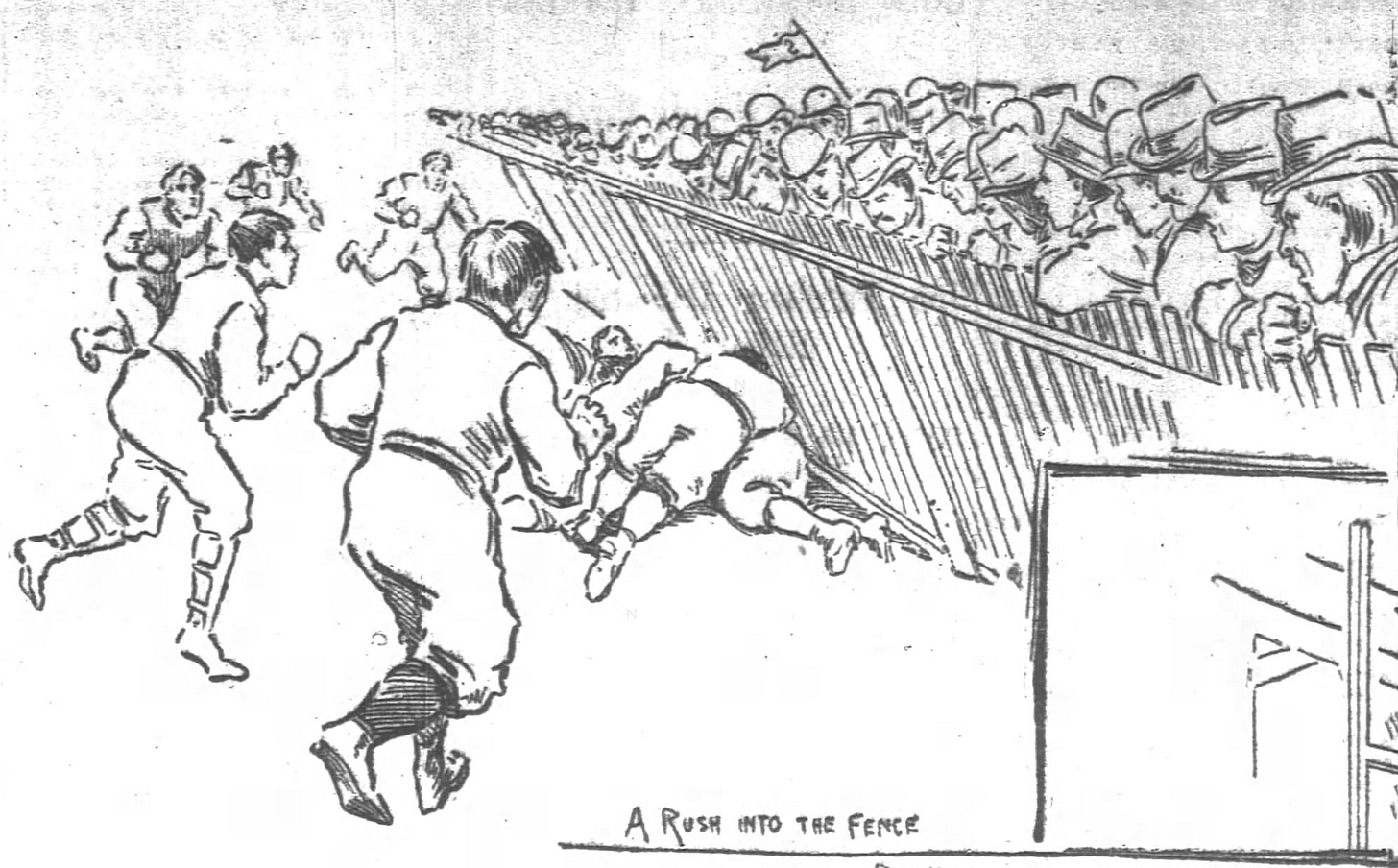Frank Hering, The Overhand Spiral, and Mother's Day
Frank Hering played football for the University of Chicago in 1893 and 1894, the second and third years of the school and team's existence. He was positioned deep on defense as the team's quarterback, so he was often there to catch and return punts. On some punt returns, he employed a trick, as Stagg recalled 60 years later.
According to Stagg, Hering had developed the ability to throw the overhand spiral pass. On some punt returns, Hering fielded the ball, turned, and threw it to a teammate across the field but behind him, so the throw was lateral. Field Yost employed a technique similar to that with his teams in the 1890s, but Hering appears to be the first player known to have thrown the overhand spiral pass.
His 1894 Chicago squad became the first football team to cross the Rockies when they traveled west for four games over Christmas. A few items pop out from the news coverage of their Christmas Day game with Stanford. First, the illustration includes a cool image of players rushing into the fence in the scramble for a fumbled ball that went out of bounds. (Balls going out of bounds remained live in those days.)
Second, Hering disagreed with a call that failed to give Chicago credit for a first-half touchdown, leading Hering to let Umpire Warren Olney Jr. know of his error as halftime began. Olney, who played for Cal a few years earlier, responded by punching Hering, so Hering returned the favor. The fight ended there, as did Olney's day, since they replaced him with a new umpire for the second half.
The game also featured a tactic the Westerners saw for the first time. The innovation involved Chicago's kickoff coverage. Rather than standing around and heading downfield only after kicking the ball, Chicago's players got a head start in their coverage by beginning their run downfield as the kicker passed them in his approach. Like everything else in the game, that simple tactic started somewhere, and it appears it was new in 1894.
Hering left Chicago after the academic year and spent 1895 coaching Bucknell. The following year, he landed in South Bend and quarterbacked, captained, and coached the Notre Dame football team while working as an instructor in the athletic department. He also coached the basketball, baseball, and track teams and the 1897 and 1898 football teams while earning a bachelor's in English and Law.

Despite his role as an athlete, Hering's most significant impact on American life was yet to come. Hering remained in South Bend to practice law, serving as a trustee and president of the alum association. He also became involved with the Elks, the fraternal organization, not the football team in Edmonton.
In 1904, he proposed in a speech to an Elks audience in Indianapolis that the United States should set aside one day per year to celebrate mothers. The idea took a while to get moving. Still, in 1914, Congress determined that Mother's Day would be observed nationally, so the first known overhand spiral passer became the Father of Mother's Day, which thankfully is not celebrated during football season.
Football Archaeology is a reader-supported site. Click here for options on how to support this site beyond a free subscription.




Great story!! I learned something new
I love stories like this, especially when attempting to answer "who did that first?"